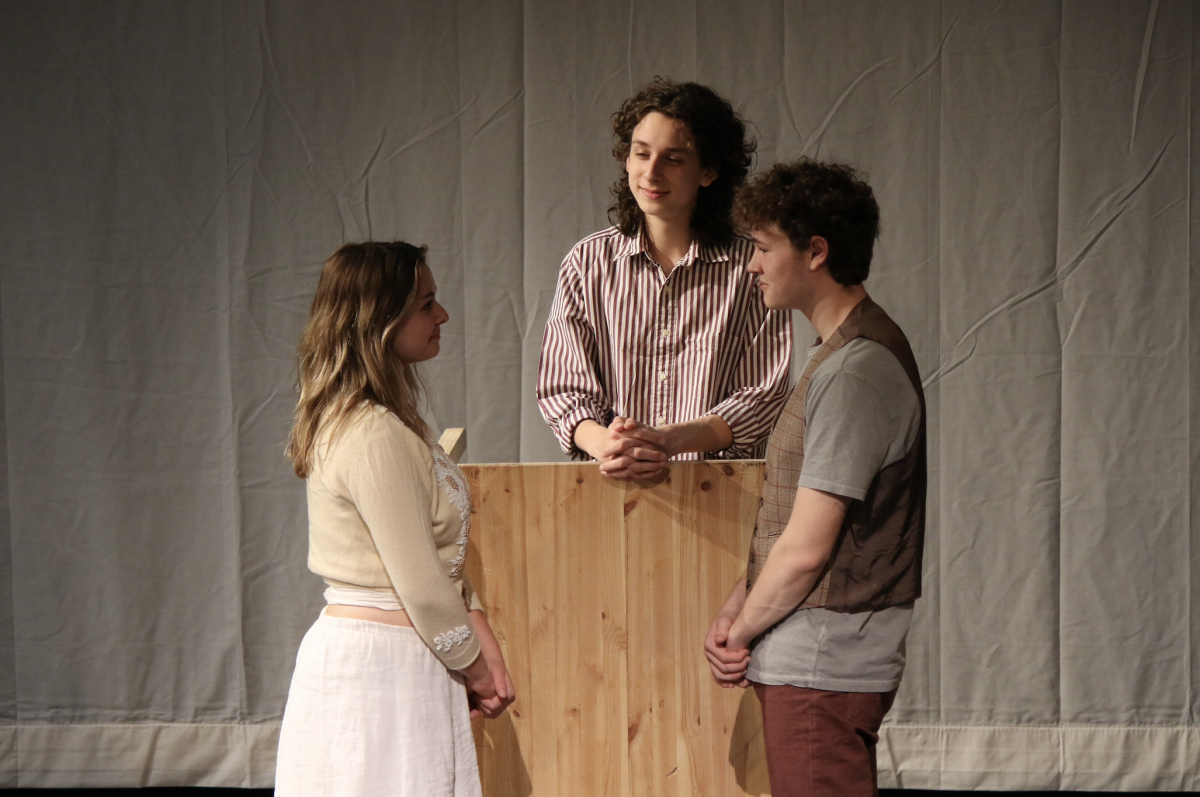The upper school performed Thornton Wilder’s play “Our Town” from March 16 to 18 after more than two months of preparation.
The play follows a small town in the early 1900s, honing in on the lives of two teenagers, George Gibbs and Emily Webb. The story’s overall theme is the importance of the little moments in life.
Though the story is beautiful, it’s in no way groundbreaking. The true uniqueness of the play is evident when looking into how Wilder’s story was reproduced on stage.
Upper school theatre teacher and “Our Town” director Kerri Rambow chose to use a thrust stage, which is “a stage that extends into the auditorium,” according to Oxford Dictionary. The set followed a three quarters thrust model, which includes seating around three out of the four sides of the stage.
The unique placement of the stage helps in one of its main avenues of storytelling: its use of the fourth wall. “A lot of plays don’t break the fourth wall; some maybe crack it,” sophomore Maddy Fine said. “But in this play, there is no fourth wall, metaphorically and literally.”
Fine played one of the three Stage Managers, which are the show’s narrators. Her role maintained an ongoing dialogue with the audience about the lives of the townspeople, along with explicitly announcing time skips and setting changes.
The Stage Managers give just enough insight to keep the audience in the loop, while still keeping them well within the boundaries of the town presented in the play. Additionally, they help the audience jump from each small snippet-like scene to the next, forming a window into the characters’ lives which eventually builds into a cohesive narrative. “It’s these beautiful little moments… that make you understand the fragility of life and how you need to truly understand and appreciate the moments,” junior and “Our Town” stage manager Martina Tognato Guáqueta said.
It’s these beautiful little moments… that make you understand the fragility of life.
Martina Tognato Guáqueta
From my own viewing, I saw just how quickly these characters grasp you, leaving you completely and utterly enthralled in their lives even just ten minutes in. Though at times the narrators’ quick time jumps may seem abrupt, they allow the pacing to stay on track throughout the play. It leaves you on the edge of your seat, never knowing just what could happen next, despite its seemingly ordinary setting and plot.
All in all, the unique execution in “Our Town” allows it to convey its message and resonate emotionally with its audience to an unprecedented degree, though perhaps not in the most concise manner. “[Despite seeing] this show start to end probably 30 times because of rehearsal, it still makes me cry,” Tognato Guáqueta said. “This is the kind of play where you have to… give it a shot because it’s going to sound a little weird at first.”
Fine also connected with the play’s overall message. “It shows its audience that you’re not going to have infinite time and you just have to appreciate the time you have, [especially since, as high schoolers], we’re at the beginning of everything,” she said.
By Dora Baptista dos Santos


































































